Volkswagen: "Japan Is Not A Closed Market."

“No, Japan is not a closed market, come on, it has zero percent duty on cars.” Such spoke Yasuo Maruta, Communications Director of Volkswagen Japan, today at Volkswagen’s Tokyo offices. Volkswagen Group sold 66,000 cars in the first ten months of the year in Japan, and is expected to sell roughly 80,000 by the end of the year, making it Japan’s largest car importer, a title it held for as long as I can remember.
Maruta’s employer wants to enlarge its footprint in Japan.
Volkswagen is not worried about the non-tariff barriers alleged by the American Automotive Policy Council on behalf of its paymaster GM, Ford and Chrysler. American companies have for all intents and purposes given up on the Japanese market. Instead of selling cars, they sell fiction about closed markets, manipulated currencies and threatened U.S. jobs. All Detroit brands together sold a little over 10,000 units in the first 9 months in Japan, a fraction of Volkswagen Group’s imports.
Maruta has a hard time coming up with hurdles that may be in the way of successful imports. “Type approval procedures are much less of a problem than in the past,” says Maruta, while noting that Japan’s preferential Handling Procedure allows small series of up to 2,000 units into the country with the barest of paperwork. Pressed hard to find something, he says that his company currently cannot import cars with CNG tanks into Japan. (Volkswagen’s Passat CNG hybrid is not available in the U.S. either.)
Volkswagen wants to expand its sizable dealer network in Japan, something that would be impossible if the propaganda of the anti-Japan lobby is to be believed. “Sure, land for dealerships is expensive in Japan, especially in the cities,” says Maruta. Except for a lack of money or patience, nothing bars an importer from establishing dealers in Japan. “Market entry takes a lot of time and money,” says Maruta, “you must go step by step.” Volkswagen has been in Japan since the ancient times of the original Bug.
Maruta is very familiar with the issue. Before coming to Volkswagen, he worked for Mazda, then GM. He recalls “when Toyota sold the Chevrolet Cavalier, I sold Saturn, and Chrysler tried to sell the Neon, they called it the Japan killer car, but unfortunately …”
Being a company that is heavy on small cars, Volkswagen has issues with Japan’s special treatment for Kei cars. Says Maruta: “Automotive tax for a kei is some 7,200 yen ($90) a year, compared to say a Vitz for which you would have to pay more than 30,000 yen ($374) a year.” Kei cars have 33 percent of the Japanese market, a segment Maruta’s employer can’t touch, because Volkswagen does not have the product.
Nothing precludes a foreign manufacturer from making and importing a kei, but it would be a silly exercise.Volkswagen’s design chief Walter de Silva “drew us a schematic, showing that he would need a completely new platform for a Volkswagen kei car,” chimes in Maruta’s collegaue, Dorothea Gasztner. “An outsider would never reach the volume necessary for a successful entry into the kei car market.” Even Japanese car companies battle with the low volume of keis. Production more and more concentrates on a few key makers such as Daihatsu and Suzuki that produce keis for other Japanese car companies. Subaru for instance handed its kei car production to Toyota’s Daihatsu, in return, Subaru manufactures the low volume hachi-roku sports car.
Volkswagen tried with an engagement with Suzuki, but it was thwarted. Not by a non-tariff barrier, but by a rambunctious Osamu Suzuki. Now, Volkswagen, along with importers allied in the Japan Automobile Importers Association, lobbies for an end of the preferential tax treatment of kei cars.
Another limitation to successful entry into the Japanese market is the Japanese customer that predominantly prefers homegrown cars. Maruta hopes to convince more. A recent study shows that 25 percent of Japanese car buyers would consider a foreign car, “whether they buy one is another matter,” Maruta says.
The key is having the right product that speaks to the peculiar Japanese psyche, where small is beautiful, and big is boorish. Volkswagen found that product in the small but peppy Up! that shapes up to be Volkswagen’s most successful Japanese product launch ever. In a few days (and after we have found a magnifying glass) we will look closer at the success of the Up! in Japan.
In October, sales of cars imported to Japan rose 20.1 percent year-on-year to 23,597 units, data released by the Japan Automobile Importers Association show. January through October, 257,206 units were imported.

Bertel Schmitt comes back to journalism after taking a 35 year break in advertising and marketing. He ran and owned advertising agencies in Duesseldorf, Germany, and New York City. Volkswagen A.G. was Bertel's most important corporate account. Schmitt's advertising and marketing career touched many corners of the industry with a special focus on automotive products and services. Since 2004, he lives in Japan and China with his wife <a href="http://www.tomokoandbertel.com"> Tomoko </a>. Bertel Schmitt is a founding board member of the <a href="http://www.offshoresuperseries.com"> Offshore Super Series </a>, an American offshore powerboat racing organization. He is co-owner of the racing team Typhoon.
More by Bertel Schmitt
Latest Car Reviews
Read moreLatest Product Reviews
Read moreRecent Comments
- Tassos Ah yes, the longer Golf. My favourite.
- Wjtinfwb Seems like VW sold a lot of Scirocco's but a decent one is impossible to find. Maybe that's saying something on its own.
- The Oracle Way to let the consumer perform the final validation testing.
- KOKing The supposed MR2 revival was pretty enticing. A Celica? Depends on what it ends up being. A RWD coupe or a FWD/AWD rallyable 'secretary's car'? The former would need to replace the 86 or a budget Supra replacement; the latter the GR Corolla.
- Theflyersfan Breaking news: A bunch of self driving BMWs were witnessed running into barriers at high speeds, rendering them destroyed and unrecognizable. Witnesses state that the autonomous BMWs passed a reflective mirror wall in the factory, and it was speculated that when the cars' cameras processed the image on the mirror, the cars lost their will to exist. And even after this destructive event, BMW execs still refuse to modify their awful designs.




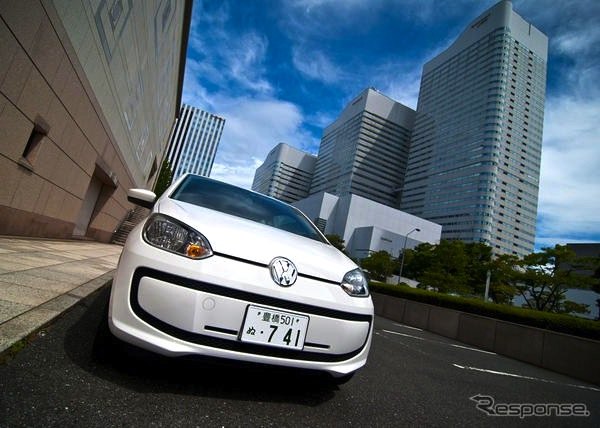
















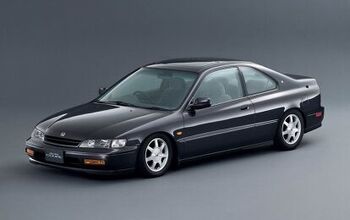
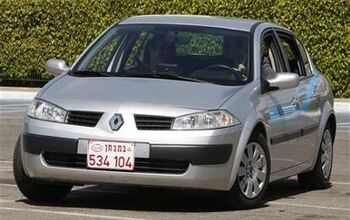
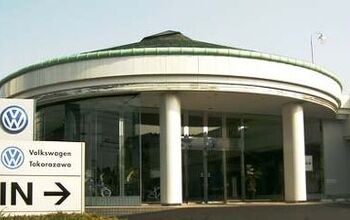
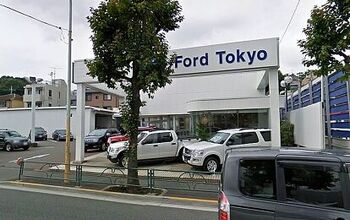










Comments
Join the conversation
The American Automotive Policy Council will not tell you the real reason American companies have abandoned the Japanese market, Profits!! There aren't any to be made in Japan for a volume player. Selling Kei cars will only make it worse. The only way to make money is by selling low volume niche products. VW enjoys some branding power and higher Audi sales more than offset negative margins on the Up. Det 3 and Hyundai/Kia do not enjoy the same branding power. H/K has completely left the market and Det3 have reduced themselves to selling low volume niche products. Toyota with nearly 50% market share has lost $13B in Japan over the last four years. Toyota Japan financial results FY2009 – Yen 237.5B loss ($2.96B Loss) FY2010 – Yen 225.2B loss ($2.81B Loss) FY2011 – Yen 362.4B loss ($4.55B Loss) FY2012 – Yen 207.0B loss ($2.58B Loss) There are no profits to me made so there is no point in expanding. The other factor restricting sales is prices. A base Chevy Sonic sells for $24,000 in Japan. How is that going to compete with a $18,000 Auris(Yaris)/Fit? Even the Fit hybrid costs less than a Sonic. For comparison how many Corollas would sell in the US if a base Corolla cost $24,000 while the Focus,Cruze and Dart sell for $18,000? Before you argue that the Sonic is an import in Japan while the Corolla is made locally in the US, 50% of Corollas sold last year in the US were imported before the Mississippi plant came online. A base Camaro costs $55,000 in Japan! It is good to see VW taking the charge and expanding into Japan. In a declining market, these sales have to some from somewhere (Most likely Toyota with 50% market share) further increasing losses for Japanese automakers in their home market. I want to see the Det 3 collaborate and create a joint platform Kei car and produce it locally in Japan to compete with Japanese automakers if only to f$^& with Toyota. The VW communications director is not stupid. He is not going to say anything negative about Japan if he intends on selling cars there. The same reason why Japanese Auto officials haven't been talking smack about Chinese officials fueling riots in China against Japanese automakers.
The ACEA (European Automobile Manufacturers Association) complains about Japan's non-tariff barriers, and opposes a free trade agreement between the EU and Japan. http://www.acea.be/news/news_detail/speaking_points_on_the_launch_of_free_trade_talks_between_the_eu_and_japan Volkswagen AG is a member of the ACEA. I really don't understand TTAC's compulsion to spin this NTB story as a uniquely American complaint. The Americans and Europeans have very similar complaints. Japan signed on to the international agreement for harmonized standards (which is essentially an agreement to apply EU standards outside of the EU). Yet Japan continues to maintain its own standards with its own type certification process, which slows and complicates the process of getting imports approved for sale in Japan. Again, why TTAC chooses to misrepresent the grievances, I don't know, but again, the Europeans are making largely the same complaints about Japan's approval processes that the Americans are.